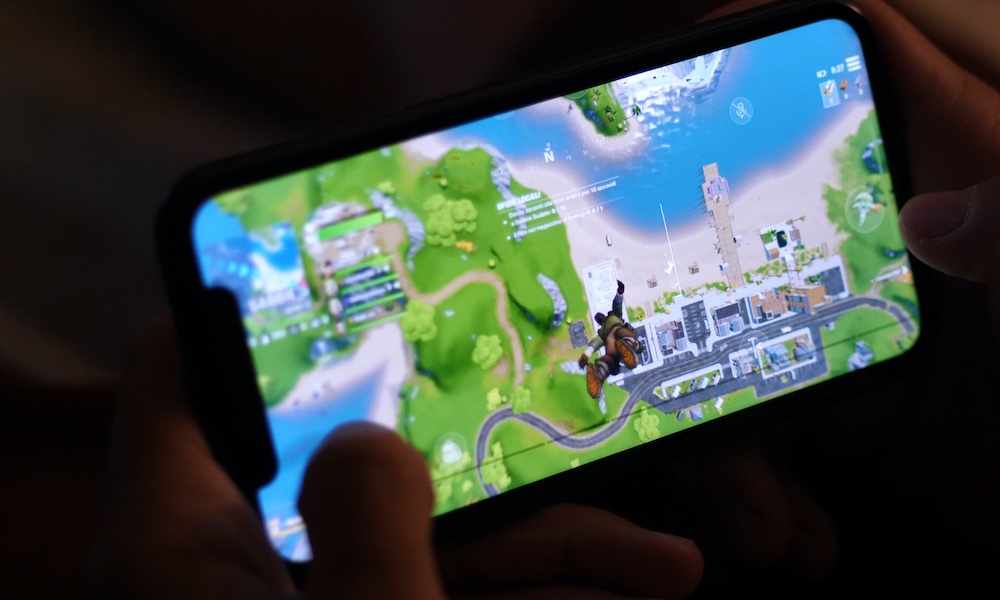Tough Decisions: Apple Is Facing a Major Video Game Problem Right Now
 Credit: Roman Kosolapov / Shutterstock
Credit: Roman Kosolapov / Shutterstock
Toggle Dark Mode
Apple is going through a moment with video games right now, and things aren’t pretty. The company recently blocked Microsoft’s xCloud service, which would have allowed you to play Xbox games on Apple devices (and is currently allowed by Android). Facebook and Google have similar complaints, although Apple does let other streaming services offer apps, so the whole policy is a bit hit or miss.
Apple is now also dealing with lawsuits after banning Fortnite when Epic Games announced that it would be offering in-app purchases – something not uncommon in the gaming world.
But in-app transactions are also facing upheaval of their own, with bills and regulations from governments around the world limiting or outright banning transactions like lootboxes and other optional fees that many mobile games depend on to survive.
So, what should you make of the current turmoil? Let’s sum up the issue with a look at several key points.
Apple Wants to Guarantee Security
Essentially, Apple wants to ban the ability for users to stream games from another service, onto iOS or macOS platforms. This is the issue with xCloud, and with Facebook’s gaming app that had to strip all game functions before Apple would allow it to appear on the App Store. In these cases, gamers can choose from a selection of titles that are offered via other services.
Apple can’t control that, and that’s a problem, as Apple is very intent on ensuring the security and privacy of customer data. When customers are sending information and activity from their iOS devices to those outside streaming services, that’s data Apple can’t easily protect or see – which is the primary stated reason for the bans.
Of course, things are a little more complicated. This rule seems primarily made for larger brands like Microsoft and Google (with their Stadia offerings). Apple doesn’t appear to want companies that bring so much bargaining power to offer their own games through Apple’s services…when Apple could be selling those games itself through something like Apple Arcade. So there is definitely a note of competition to these app negotiations.
Apple Wants Money from Developers
But what’s going on with the Fortnite ban? It’s connected to the issue with third-party streaming services. Epic Games has to pay steep fees to get Fortnite on the App Store, and then only use Apple’s own payment systems as a method for players to buy V-Bucks. Epic Games saw this as Apple essentially double-dipping, and created an in-game method to buy currency through its own payment system. Apple immediately banned Fortnite as a result.
These bans are an attempt to protect revenue streams from games. Apple knows that most mobile revenue comes from players buying stuff like V-Bucks or lootboxes. As long as players are doing that with Apple’s payment system, Apple benefits with a 30% merchant fee – and Apple really, really wants to hang onto that fee system for revenue. But this poses a different problem, because…
Developers are Losing Ways to Make Money
In-game transactions are facing a new era, and it’s not going to be pretty for a lot of mobile games. Investors have been predicting a big crackdown for some time. Government in both the West and the East have been creating new regulations that ban lootboxes and any forms of gambling and even limiting the time people can spend playing a game. Countries like the UK are considering banning a wide swath of in-game purchases entirely, and the United States is eyeing similar regulations.
The gaming industry…doesn’t really have a plan for this. If it continues, the mobile gaming sector is going to crash hard, and companies that depend on in-game transactions are going either crash with it, or have to switch to entirely new methods of revenue (no one is sure what that would look like yet, but it would have a big impact on major players like Blizzard, EA Games, and others).
That makes this a difficult time for Apple to be insisting on taking money off the top, when the revenue model itself is in danger of collapsing in the coming years.
Apple Has Tough Decisions Ahead for Gaming
So, Apple is trying hard to hold onto a fee model that developers hate, fueled by in-game activity that may soon no longer be possible, while avoiding partnerships with any other big gaming platforms. If that doesn’t sound very sustainable to you, you’re not alone.
The current lawsuits are a sign that Apple has some decisions to make. It could relax in-game transaction rules and lose a chunk of revenue, but keep partnerships with valuable developers. It could decide to concentrate entirely on one-time game purchases on Apple Arcade as a way to prepare for bans on in-game transactions. Or, it could do nothing. But gamers invested in Apple devices should be paying close attention in the coming months.









